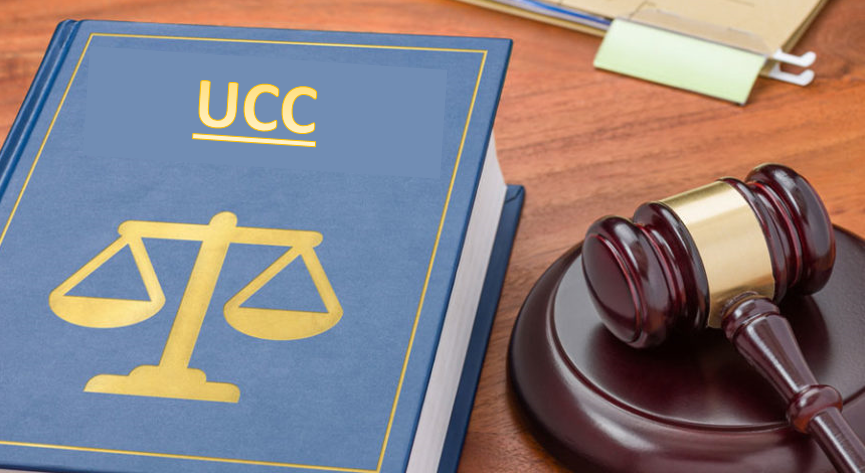Published On: 24th July, 2024
Authored By: Shravani Somnath Motgi
School of Law, Mahindra University
Abstract:
The Indian legal system has witnessed significant debate regarding the arbitrability of consumer disputes. The Consumer Protection Act aimed to safeguard consumer interests and provide an effective redressal mechanism. However, the Supreme Court’s decision in Emaar MGF Land Limited v. Aftab Singh has brought the issue of consumer arbitration to the forefront. This case involved a dispute between a land developer and a villa purchaser, with an arbitration clause in their agreement. The National Consumer Disputes Redressal Commission (NCDRC) deemed the dispute non-arbitrable, prompting the appellant to seek a referral to arbitration under the Arbitration Act. The Supreme Court’s analysis emphasized the legislative intent behind the Consumer Protection Act, which prioritizes consumer protection and establishes a more accessible, cost-effective, and expeditious redressal system. The concept of inequality in bargaining power, rooted in historical principles, highlights the disparity between parties in negotiation capacity, particularly in consumer contracts. This inequality challenges the principle of freedom of contracts and raises questions about fairness in contractual relationships. The impact of arbitration on consumers in India is significant, with concerns regarding power imbalances, lack of transparency, and limited appeal opportunities. The confidential nature of arbitration proceedings hinders consumers’ ability to expose systemic issues and unjust practices. The debate surrounding consumer arbitration underscores the need to strike a balance between the efficiency of alternative dispute resolution and the protection of consumer rights in India.
Introduction:
According to Section 1(a)[1], arbitration means any arbitration whether or not administered by a permanent arbitral institution. The concept of arbitration [2]means the resolution of disputes between parties at the earliest point of time without getting into the procedural technicalities associated with the functioning of a civil court. Consumer disputes are considered to be unsuitable for arbitration. Despite the presence of an arbitration agreement under the said act, is deemed more appropriate for consumer grievances to be adjudicated by the Consumer Forum. The enactment of the Consumer Protection Act brought protection to consumers’ interests and established the Consumer Councils and other authorities to settle consumer disputes. This legislation aims to provide consumers with an effective and advantageous means of resolving their grievances.
The Supreme Court of India, in the case of Emaar MGF Land Limited v. Aftab Singh[3], held that the consumers have the choice to access the beneficial remedy offered by the Arbitration Act of 1996 instead of being compelled to resolve disputes before an arbitral tribunal under the said Act. The appellants contested a decision by the National Consumer Disputes Redressal Commission (NCDRC) which categorized consumer disputes as non-arbitrable. The appellant in question had purchased land in Mohali, Punjab to develop an integrated township. Following this action, the petitioner applied for the allocation of a villa on the same property. Appellant and Petitioner entered into a contractual agreement that included an arbitration clause for resolving disputes in accordance with the said Act.
Subsequently, the petitioners filed a grievance against the appellant with the NCDRC. The appellant in response applied Section 8 [4]of the said Act, seeking for the referral of the matter to arbitration. The Appellant contended that the Buyer’s agreement constituted a valid arbitration agreement under Section 7(2) [5]of the Arbitration Act. However, the NCDRC determined that the dispute was not suitable for arbitration and should be addressed through alternative legal channels. The High Court declined to consider the appeals and mandated that they be presented before the appropriate Appellate Court.
Analysis by the Supreme Court:
The Consumer Protection Act was carefully considered by the Supreme Court in the case of Lucknow Development Act v. M.K. Gupta. [6]The preamble of this Act helps to understand the legislative intention, as it was enacted to protect the interests of consumers. The use of the word ‘protection’ reveals the primary focus of the Act. The Act aims to address the long-felt need to safeguard the common man from wrongs for which the remedy under ordinary law has become ineffective. In Thirumurugan Cooperative Agricultural Credit Society v. M. Lalitha[7], it was emphasized that the Act’s primary objective is to provide better protection for consumers and to establish a more effective redressal mechanism that is cheaper, easier, and quicker.
Inequality of Bargaining Power:
The inequality of bargaining power arises when one party possesses a dominant position, allowing them to enforce unfavourable terms that the weaker party must consent to seal the deal. This inequity constrains the weaker party’s negotiation capacity. Contractual agreements frequently exhibit varying degrees of this inequality due to factors such as economic disparities or unique circumstances, such as monopolies on specific services. The historical antecedents of this concept can be traced back to Roman Law’s “laesio enormis” principle, which provided redress for unfair land sales, as well as to equitable decisions by the Courts of Chancery, exemplified in the case of Earl of Aylesford v. Morris[8], wherein exorbitant interest rates were deemed inequitable. Likewise, in Fry v. Lane[9], a contract was invalidated owing to substantial underestimation, underscoring the emergence of unconscionability when one party exploits its superior position to the detriment of the other.
The concept of inequality of bargaining power can be observed in two distinct scenarios. Firstly, it pertains to a party’s capacity to negotiate, wherein one party possesses significant market influence, allowing them to dictate terms and conduct, potentially resulting in an abuse of dominant position. This is subject to state regulation to prevent such abuse. The second scenario involves a party with limited or no leverage in negotiations. This condition does not exclusively involve transactions with dominant market players but rather encompasses parties in disadvantaged negotiation positions due to factors such as lack of knowledge, susceptibility, urgent need, inadequate negotiation skills, or marginal influence in the market. This concept extends beyond a party’s level of sophistication and encompasses situations in which a party accepts an agreement without the ability to negotiate. The development of contract law acknowledges that under certain circumstances, contracts may be voided due to identified unequal bargaining power. This presents a challenge to the principle of freedom of contract, which upholds individuals’ autonomy in contract formation. The doctrine of inequality of bargaining power questions the idea that contract law should be free from limitations and suggests that fairness should be a prerequisite for contract validity. Conversely, the classical view of contract law emphasizes the autonomy of individuals in consenting to agreements with minimal interference. This perspective favours a more formalistic approach to contract law, avoiding flexibility influenced by fairness considerations such as inequality of bargaining power. However, the lack of a precise definition for the inequality of bargaining power introduces uncertainty, which is undesirable in contractual interactions.
Impact of arbitration on consumers:
Arbitration, commonly regarded as a speedier and more efficient alternative to traditional litigation, presents several challenges for Indian consumers. A major issue is the perceived power imbalance between consumers and corporate entities. Large corporations often possess the financial means to retain experienced legal teams and influence the selection of arbitrators, who may exhibit bias in their favour, leading to rulings that disadvantage consumers. Additionally, arbitration proceedings are confidential, resulting in a lack of transparency and accountability compared to public court cases, making it difficult for consumers to expose systemic issues or unjust business practices. Furthermore, the limited opportunities for appeal following arbitration are another significant drawback. Unlike judicial decisions, arbitration awards are challenging to contest, with narrowly defined grounds for appeal primarily focused on procedural matters rather than substantive injustices, leaving consumers with few viable options for recourse. The financial aspect is a crucial consideration in the context of arbitration. Although it is advertised as a cost-effective solution, the actual expenses can add up, particularly when taking into account arbitrator fees, administrative costs, and potential legal fees. For many consumers, these financial implications can be overwhelming and may discourage them from pursuing valid claims.
One significant issue that arises from the lack of consumer awareness and understanding of arbitration provisions in contracts is evident. Many consumers unknowingly accept arbitration clauses when entering into agreements for goods and services, frequently without fully comprehending the consequences. These clauses typically involve a waiver of the right to litigate disputes in a court of law, requiring individuals to participate in arbitration that may not always align with their best interests.
Conclusion:
The Supreme Court of India, in the case of Emaar MGF Land Limited v. Aftab Singh, held that consumers have the choice to access the beneficial remedy offered by the Arbitration Act of 1996 instead of being compelled to resolve disputes before an arbitral tribunal. The Consumer Protection Act was enacted to protect the interests of consumers and address the need to safeguard the common man from wrongs for which the remedy under ordinary law has become ineffective. The inequality of bargaining power arises when one party possesses a dominant position, allowing them to enforce unfavourable terms. The concept of inequality of bargaining power can be observed in two distinct scenarios: a party’s capacity to negotiate and a party with limited or no leverage in negotiations. Arbitration presents several challenges for Indian consumers, including perceived power imbalance, lack of transparency and accountability, and limited opportunities for appeal.
Reference(s):
[1] The Arbitration and Conciliation Act, 1996 s 1(a)
[2] Hardeep Singh, ‘Definition of arbitration under the Arbitration and Conciliation Act,1996’, iPleaders, https://blog.ipleaders.in/arbitration-definition/ accessed on 25 June 2024 at 1:54 am
[3] Macquarie Sbi Infrastructure Pte Ltd v Sadananda Shetty (Delhi HC, 22 June 2021) https://indiankanoon.org/doc/60243004/ accessed 25 June 2024.
[4] The Arbitration Act, 1996 s 8.
[5] The Arbitration Act, 1996 s 7(2)
[6] BareLaw, ‘Lucknow Development Authority v MK Gupta’ (BareLaw, 3 June 2023) https://www.barelaw.in/lucknow-development-authority-v-mk-gupta/#:~:text=The%20Supreme%20Court%20held%20that,power%20to%20review%20administrative%20actions accessed 25 June 2024.
[7] Mrs. (Dr.) Avneet Kaur Bajaj v Emaar Mgf Land Limited [2016] State Consumer Disputes Redressal Commission, Punjab https://indiankanoon.org/doc/1640713/ accessed 25 June 2024.
[8]Erin Murphy, ‘Unconscionability Cases’ (n.d.)
[9] Fry v Lane (1888) 40 Ch D 312,https://www.oxbridgenotes.co.uk/law_cases/fry-v-lane accessed 25 June 2024.




